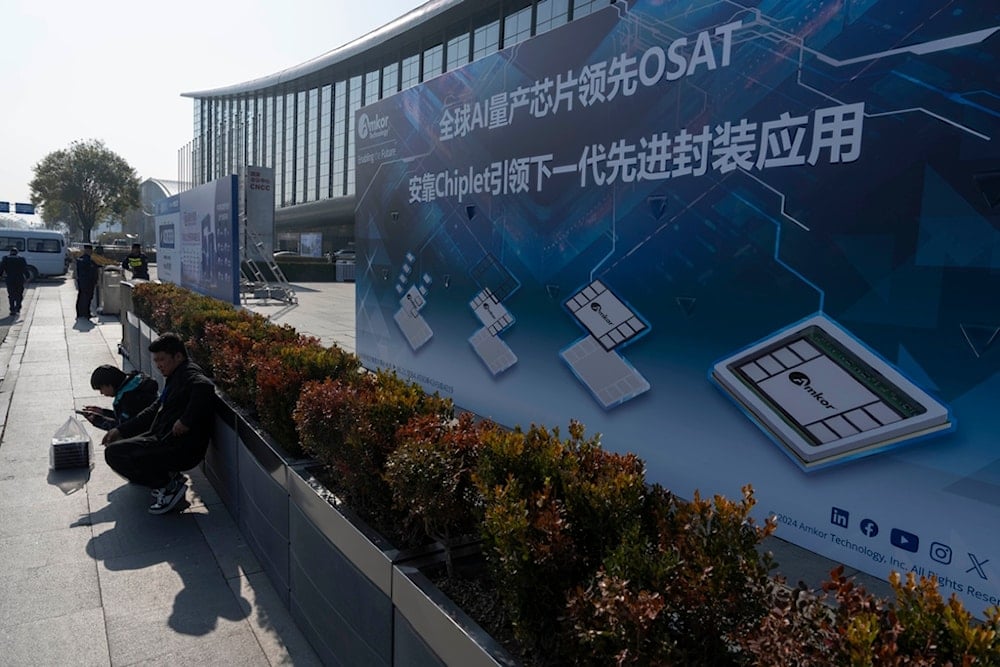Trump exempts key Chinese electronics from harsh tariff regime
This rollback marks a significant scaling down of the aggressive measures introduced earlier this month by the White House.
-

Men take a smoke break near an ad outside the 21st China International Semiconductor Expo in Beijing, Wednesday, Nov. 20, 2024 (AP Photo/Ng Han Guan)
Facing mounting pressure from the US technology sector and rising consumer concerns, the Trump administration has announced exemptions for a range of electronics, including smartphones, laptops, and critical components, from its recently imposed tariffs on Chinese imports.
In a notice issued Friday by US Customs and Border Protection, officials confirmed that several electronics categories will be excluded from the punitive tariffs that had reached up to 145 percent on certain Chinese goods. The exemptions apply to products such as hard drives, computer processors, and smartphones—all of which are predominantly manufactured in China due to its advanced and cost-effective production infrastructure.
Among the exempted items are semiconductors, which will be spared from both the standard 10% tariff imposed on most US trading partners and the additional 125% duty specifically targeting Chinese goods. This rollback marks a significant scaling down of the aggressive measures introduced earlier this month by the White House.
Washington's so-called "reciprocal tariffs," justified by allegations of unfair trade practices and concerns over fentanyl trafficking, have drawn widespread criticism for their potential destabilizing effect on global supply chains. While the Trump administration framed the tariffs as a tool to restore domestic manufacturing, economists and industry leaders have pointed out that the United States lacks the capacity to produce many of these goods, and that relocating supply chains away from China would take years, if not decades.
Even as Trump insists that a 10% tariff remains "a floor," the decision to exclude over 20 categories of electronics reveals a tacit acknowledgment of the significant role China plays in the global tech ecosystem. The exemptions are also retroactive to April 5, 2025, allowing importers to seek refunds and further signaling a retreat from the earlier hardline posture.
Beijing has consistently rejected Washington's accusations and maintained that its trade practices comply with international norms. Chinese officials have also stressed that dialogue and mutual respect—not coercive tariffs—are the only viable path forward.
Read more: China redefines semiconductor country of origin amid trade war

 2 Min Read
2 Min Read









